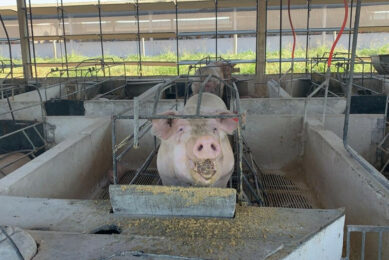Brazilian pig states to export more with new FMD status

The Brazilian states Rio Grande do Sul and Paraná are now recognised as “free from Foot-and-Mouth Disease without vaccination”. Having received that status, Brazil’s pork export opportunities have grown further.
The new status was granted by the World Organization for Animal Health (OIE) late May 2021. The recognition was announced during a meeting of the organisation based in Paris, France, and may open new opportunities for Brazilian pork meat and beef exporters.
Up until now, of the main meat producing states in Brazil, only Santa Catarina has held the status “free from FMD without vaccination,” since 2007. As a result, that state is currently responsible for roughly one third of pork production and half of pork shipments from Brazil. That held true, for instance, for the pork that has been shipped to China in recent months to fill the void created by African Swine Fever.
Pig states allowed to export pork
Now also Paraná and Rio Grande do Sul – both in southern Brazil – will be able to export their pork products. The pig industries in both states are likely to increase Brazil’s international pigmeat exports by more than 10% this year, reaching up to 35% in 2022, compared to shipping volumes in 2020.
Ricardo Santin, president of the Brazilian Animal Protein Association (ABPA), pointed to shipments of bone-in pork as well as by-products to China – the country currently importing the most Brazilian meat anyway.
In the short term, the development may also likely lead to less pork being destined for local markets. In the longer run it will probably lead to an increased level of production.
In theory, Rio Grande do Sul has a potential to reach up to 293,000 tonnes of pork exports this year, which means about US$ 715 million in revenues, or 86 million tonnes more than in 2020, when the output was 261,000 tonnes worth US$ 629 million. In 2022, this state could reach 350,000 tonnes, worth US$ 850 million.
In the case of Paraná, the potential is to export about 145,000 tonnes of pork in 2021, an increase of more than 5% compared to 2020, with estimated revenues in the order of US$ 332 million. For 2022, ABPA forecasts 165,000 tonnes could be exported, for a total value of US$ 377 million.
10% overall growth of pork meat exports
As a result, Paraná and Rio Grande do Sul could together be responsible for a 10% overall growth of Brazilian pork meat exports in comparison to the 2020 figures. That was the best year for Brazil’s pig industry in 1 year.

Read also: Protecting Brazil from pig diseases
Luís Rua, ABPA director of markets, said, “These states (Paraná and Rio Grande do Sul, ed.) open the way to access the most rigorous markets in the world, such as Japan, USA, South Korea, Chile and the Philippines. This recognition also reaffirms the excellence of Brazilian health services, whether federal, state or municipal.”
The OIE announcement also includes other states, like Acre and Rondônia as well some parts of Amazonas and Mato Grosso, as new recognised areas of being free from FMD without vaccination. Those states are predominantly important for the beef cattle industry, even though the states do have some pig production as well.
The last case of FMD in Brazil was discovered in 2006.











